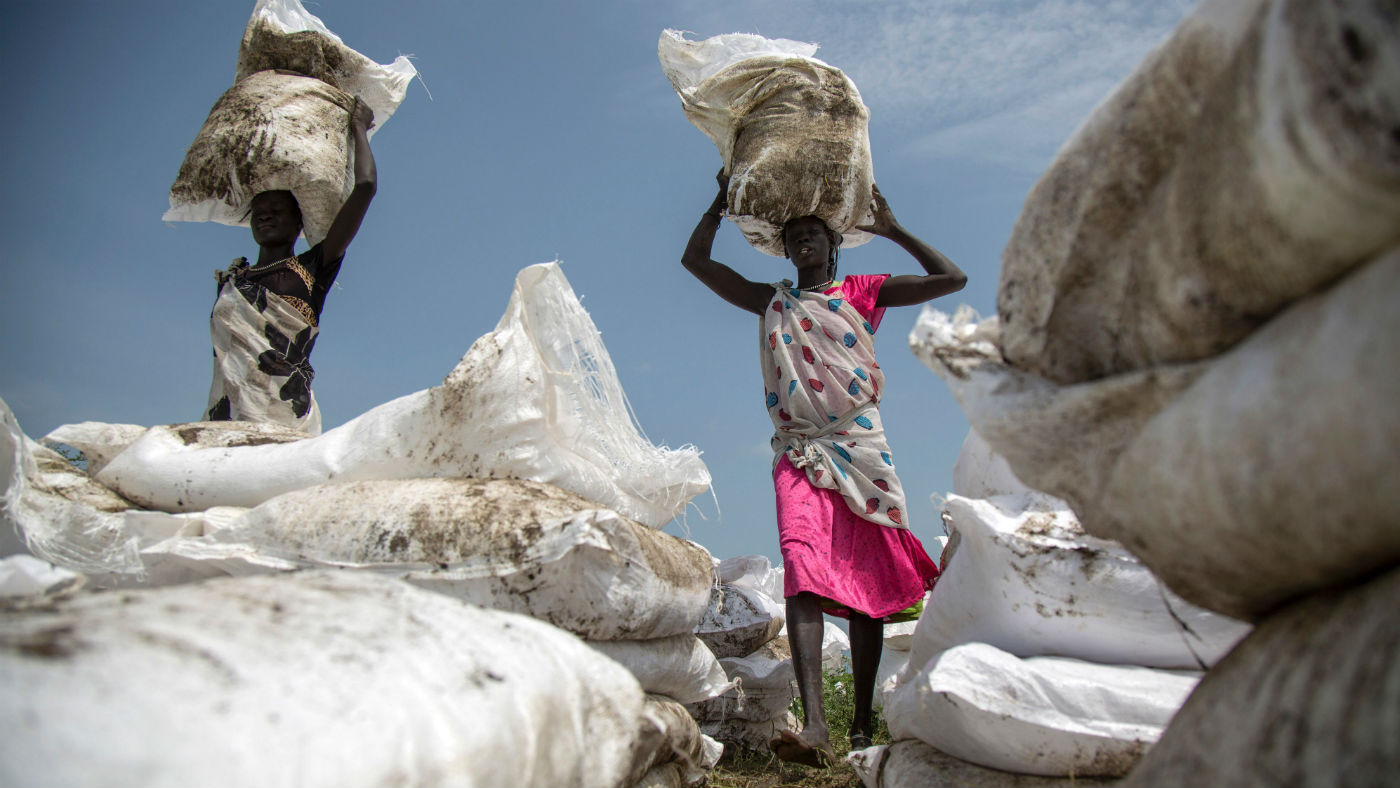How Western aid money funds world terrorism
CNN report detailing how UN money ends up with al-Shabaab just latest example of aid exploitation by terrorist groups

A free daily email with the biggest news stories of the day – and the best features from TheWeek.com
You are now subscribed
Your newsletter sign-up was successful
With Oxfam in crisis after it was revealed staff in Haiti used prostitutes, CNN has uncovered evidence that Western aid money is being used to directly fund terrorist groups.
A long-running investigation has revealed that money given directly by the United Nations to people displaced by conflict and famine in Africa is ending up in the hands of al-Qa’eda affiliate al-Shabaab.
Former members of the group and Somali intelligence agents have described how it is making thousands of dollars a day, amounting to millions of dollars a year, through extortion at road blocks and taxes on merchants trying to transport food and supplies to displaced people.
The Week
Escape your echo chamber. Get the facts behind the news, plus analysis from multiple perspectives.

Sign up for The Week's Free Newsletters
From our morning news briefing to a weekly Good News Newsletter, get the best of The Week delivered directly to your inbox.
From our morning news briefing to a weekly Good News Newsletter, get the best of The Week delivered directly to your inbox.
According to one former al-Shabaab ‘tax collector’ who now works for the security services, the terror group would take around $3 per bag of rice delivered by aid agencies.
Western aid agencies have a troubled history in the region. In the 1990s, some paid warlords to gain access to hundreds of thousands of people who had been deliberately starved.
This strategy only made matters worse, as warlords worked to keep the famine going in order to keep aid money flowing. The practice was only halted after intense international pressure forced Western nations to intervene militarily.
Yet, 25 years on from the infamous Black Hawk Down incident, which cost the lives of 18 US servicemen and led to the eventual withdrawal of the US humanitarian mission, “the systems of corruption and manipulation of aid in Somalia remain, and have now been co-opted to finance a terrorist movement that controls about a third of the country and may become a magnet for Isis jihadists on the run from their former caliphate in Syria and Iraq”, reports CNN.
A free daily email with the biggest news stories of the day – and the best features from TheWeek.com
It is also far from an isolated incident. Earlier this year, the US announced it was withholding $225m (£166m) in aid from Pakistan over allegations the county was using the money to fund state-sponsored terrorism.
Nikki Haley, the US Ambassador to the United Nations, said there were “clear reasons” for stopping the payment, adding that Pakistan had “played a double game for years”.
The British government has also been accused of indirectly funding terrorist groups. A BBC Panorama investigation last December found taxpayers’ cash was being diverted to extremists in Syria.
-
 The environmental cost of GLP-1s
The environmental cost of GLP-1sThe explainer Producing the drugs is a dirty process
-
 Nuuk becomes ground zero for Greenland’s diplomatic straits
Nuuk becomes ground zero for Greenland’s diplomatic straitsIN THE SPOTLIGHT A flurry of new consular activity in the remote Danish protectorate shows how important Greenland has become to Europeans’ anxiety about American imperialism
-
 ‘This is something that happens all too often’
‘This is something that happens all too often’Instant Opinion Opinion, comment and editorials of the day
-
 Epstein files topple law CEO, roil UK government
Epstein files topple law CEO, roil UK governmentSpeed Read Peter Mandelson, Britain’s former ambassador to the US, is caught up in the scandal
-
 Iran and US prepare to meet after skirmishes
Iran and US prepare to meet after skirmishesSpeed Read The incident comes amid heightened tensions in the Middle East
-
 Israel retrieves final hostage’s body from Gaza
Israel retrieves final hostage’s body from GazaSpeed Read The 24-year-old police officer was killed during the initial Hamas attack
-
 China’s Xi targets top general in growing purge
China’s Xi targets top general in growing purgeSpeed Read Zhang Youxia is being investigated over ‘grave violations’ of the law
-
 Panama and Canada are negotiating over a crucial copper mine
Panama and Canada are negotiating over a crucial copper mineIn the Spotlight Panama is set to make a final decision on the mine this summer
-
 Why Greenland’s natural resources are nearly impossible to mine
Why Greenland’s natural resources are nearly impossible to mineThe Explainer The country’s natural landscape makes the task extremely difficult
-
 Iran cuts internet as protests escalate
Iran cuts internet as protests escalateSpeed Reada Government buildings across the country have been set on fire
-
 US nabs ‘shadow’ tanker claimed by Russia
US nabs ‘shadow’ tanker claimed by RussiaSpeed Read The ship was one of two vessels seized by the US military